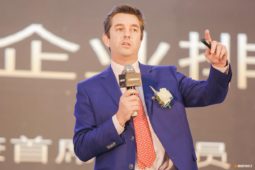
Luxury brands have been trying to win back markets like those in China. Still, new initiatives, like Dior’s Jonathan Anderson, creative director, unveiling the Spring/Summer 2026 menswear collection, are unlikely to make a big splash among China’s consumers, says luxury brand expert Ashley Dudarenok, in the BurdaLuxury.
The Burda Luxury:
In China – one of Dior’s most strategically significant markets – the reaction to Anderson’s debut was mixed, offering insight into the evolving tastes of a highly sophisticated luxury audience.
“There hasn’t been any official news published in China about Dior’s new designer or collection,” Ashley Dudarenok, Founder of China digital consultancy ChoZan 超赞, tells BurdaLuxury. “This suggests that it hasn’t generated much buzz or resonance.”
Yet buzz alone doesn’t equate to long-term success. Today’s Chinese luxury consumer is increasingly selective, driven not just by brand recognition but by deeper emotional and cultural alignment.
“While younger consumers in China are willing to spend on luxury, they won’t do so merely because it’s Dior or because there’s a new designer,” explains Dudarenok.
On Chinese social media platforms like RedNote, some early comparisons drew attention to Pharrell Williams’ recent Louis Vuitton show, which captured imaginations with vibrant colour, maximalist storytelling, and overt cultural symbolism.
“Pharrell’s fusion of utility, craftsmanship, and cinematic fantasy speaks directly to younger consumers who seek meaning and self-expression in fashion,” says Dudarenok.
That said, Anderson’s more nuanced approach – anchored in restraint, history, and cultural literacy – may simply require a different pace and strategy to connect with the Chinese market.
“Anderson’s current style still diverges from the aesthetic preferences of Chinese consumers,” shares Dudarenok. “Although this is his debut collection for Dior, and he is in a transitional phase, it’s crucial for him to move beyond the design language he developed at Loewe and integrate Dior’s brand DNA more fully.”
Ashley Dudarenok is a speaker at the China Speakers Bureau. Do you need her at your meeting or conference? Do get in touch or fill in our speakers’ request form.
Are you looking for more luxury experts at the China Speakers Bureau? Do check out this list.




























